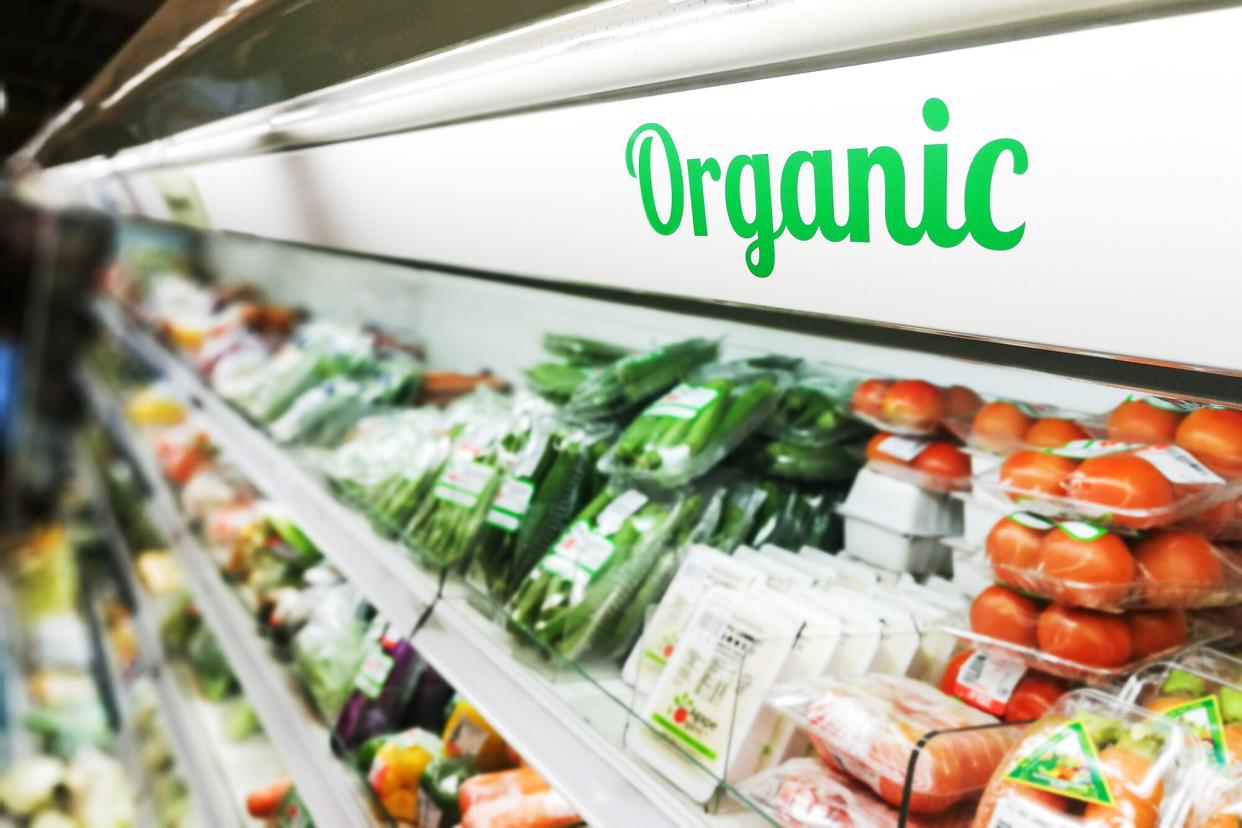Is Organic Food Healthier Than Conventional? Here's What a Dietitian Has to Say

Getty Images / ThamKC
Figuring out whether organic food should dominate your kitchen or if you can safely stick to conventionally grown items can be easier said than done. On the one hand, choosing organic food intuitively sounds like it is better for your health. But on the other hand, these options can be more costly when compared with conventional foods. And in some areas of the world, having access to organic choices can be challenging. Is it really worth the effort?
Let's set the record straight and dig into whether organic food is really healthier than conventional.
What is organic food?
While many of us have seen the words organic and conventional when grocery shopping, not all of us really know what the difference is. Sure, the word organic sounds healthy, but what does organic really mean?
The reality is that the words organic and conventional don't actually refer to how healthy a food is, but rather are an indication of how farmers grow and process the food.
The United States Department of Agriculture allows a food item to be considered organic if it is grown and processed according to federal guidelines addressing:
soil quality
animal raising practices
pest and weed control
use of additives
Organic producers rely on natural substances to be used as pesticides that are on an approved list provided by the USDA. Plus, these farmers use physical, mechanical or biologically based farming methods—which refers to how they plant, harvest and tend to their crops—and don't use most synthetic fertilizers and pesticides.
So, contrary to popular belief, organically grown produce is not pesticide-free. Rather, pesticides found on organic foods are not synthetic.
As for organic meat, regulations require that animals are raised in living conditions accommodating their natural behaviors (like grazing versus spending the day in a barn), and they are fed 100% organic feed and forage. Additionally, organic foods cannot contain any genetically modified organisms.
Ultimately, the difference between organic versus non-organic food or conventional food is that conventional does allow for the use of synthetic materials and genetically modified crops.
Is organic better for you?
The notion that organic food may be healthier than conventional is a trend that doesn't seem to be going anywhere. But if you are expecting your organic fruit or veggie to contain far more nutrients than your conventional option, you may be disappointed to learn the truth.
The fact is that there is little variation between organic and conventional food products in terms of macro nutritional value (read: protein, fat, carbohydrate and dietary fiber). And while other nutritional differences have been seen when comparing the two types of foods—namely higher antioxidant concentrations in some organic produce, increased levels of omega-3 fatty acids in organic dairy products and improved fatty acid profiles in organic meat products—the actual differences in the levels may be marginal when looking at the overall impact it has on a person's health.
If you are more focused on reducing your exposure to heavy metals (specifically cadmium) and synthetic fertilizers and pesticide residues, then organic may be your best bet, as organic produce appears to have slightly lower levels of these components. But since clinical trials are sparse, the impact of this on human health is not clear.
It is true that observational trials suggest that there is a link between better health outcomes and choosing organic over conventional options. But, it is also known that consumers of organic food tend to eat more vegetables, fruit, whole grains and are more physically active—all factors that are associated with positive health outcomes. In other words, researchers question whether the better outcomes they observe when people eat more organic food are due to the way the food was produced or if it is because of the person's overall lifestyle choices.
Should you only choose organic food?
When people are deciding whether they should choose organic or conventionally grown food, ultimately, it is a matter of personal preference. While there does not appear to be any downside to choosing organic foods when it comes to supporting health, the cost and accessibility factors can certainly be a barrier to some.
Only 1 in 10 Americans are meeting the recommended amounts of fruit and vegetable consumption. And not eating adequate produce is linked to some unsavory outcomes, like an increased risk of developing certain cancers.
Therefore, the potential negative effects of choosing conventional foods on health should not be used as an argument for reducing fruit and vegetable consumption.
Instead, people should eat a wide variety of foods and wash their produce well before enjoying it, regardless of how it was produced. Limiting foods based on fear can result in some unwanted outcomes that nobody wants to have on their plate.
Bottom Line
The main difference between conventional and organic foods is the way that the food is produced. While some studies have found higher nutrient values in certain organic foods compared to their conventional counterparts, more research is needed to determine their impacts on long-term health. Plus, organic food is often sold at a higher price point than conventional, so it might not be realistic for some budgets. In summary, there might be some slight benefits to choosing organic foods in some circumstances, but you don't need to avoid foods if they are conventional, as both types of food are safe and nutritious.

